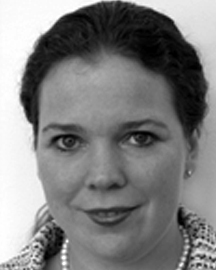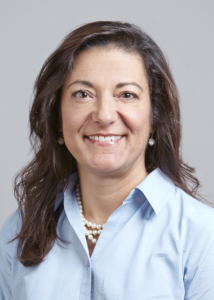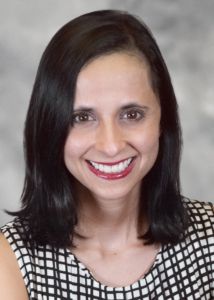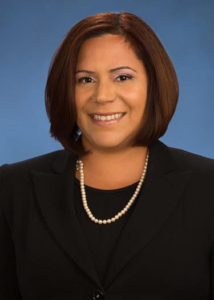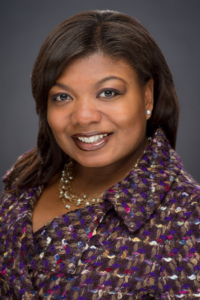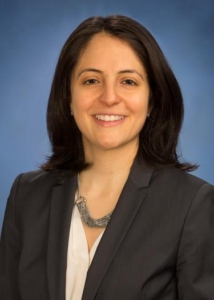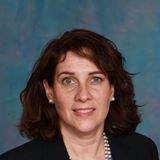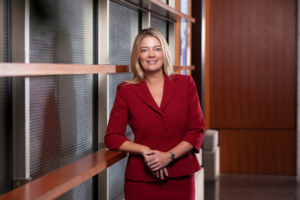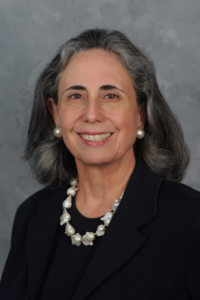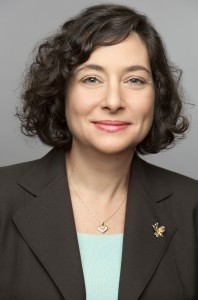 “You can always recover from being wrong if you have enough of a track record of overall success, but you can’t recover from no track record at all,” says Leah Guggenheimer, a director at Burford Capital. She recommends that professionals get outside of their heads and jump into discussions, believing that if you do it often enough, you’ll have enough opportunities to be right that it won’t matter if you miss occasionally.
“You can always recover from being wrong if you have enough of a track record of overall success, but you can’t recover from no track record at all,” says Leah Guggenheimer, a director at Burford Capital. She recommends that professionals get outside of their heads and jump into discussions, believing that if you do it often enough, you’ll have enough opportunities to be right that it won’t matter if you miss occasionally.
This viewpoint has been honed over the many career paths that Guggenheimer has taken as a master of reinvention. “My unusual career path might appear random, but there actually was a method in place,” she says.“I curated each job to build on my proven skill sets and find new experiences.”
Guggenheimer began her career as an attorney, where she represented plaintiffs in employment and consumer fraud class actions – work that she eventually found tedious, due to the slow pace with which anything was accomplished. She wanted to transition to a new career, and with the realization that it was up to her to explain her transferrable skills, she was able to parlay marketing work she’d done on her firm’s website into a position in marketing and business development at a 100-person intellectual property firm.
Her aptitude became clear as she worked on a large technology and business transformation project, which put her on a career path in business process and operations management. Subsequent positions introduced her to all aspects of change management, from learning how to assess a business from top to bottom, to managing people and performance, budgets and profitability.
Those skills allowed her to open her own consulting practice, specializing in what she calls “punchy consulting projects” designed for a quick burst of operational growth. “It’s rewarding to come in and be the objective outsider, helping businesses grow by showing them what they can build on and how they can change.”
It all came together in her current role, which bridges both her legal background and her investment operations expertise. Burford Capital is a global finance and professional services firm focused on law, investing in commercial litigation assets via expense funding, monetizing of contingency arrangements, securitized debt facilities linked to legal claims, litigation-related insurance and judgment enforcement.After six years of rapid growth, Burford Capital needed someone who really understood both operations and complex litigation to help them grow and scale their business processes, and Guggenheimer had the perfect background to take on the challenge.
Make Your Own Way
Guggenheimer’s career trajectory is proof of the wide variety of professional paths that can be pursued for a rewarding career. “I would advise people to first figure out their strengths and what they like to do and then look for jobs that leverage those capabilities. Don’t get caught up on job titles or prestige,” she said. “Your core capabilities should dictate how you design your career.”
She also advises women not to feel pigeonholed: their skills are likely transferrable and they become even more professionally attractive by evolving their expertise. She herself was nervous when considering leaving law, but asked herself what was the worst that could happen. “If I didn’t succeed, I still would have learned something useful, and with every skill you develop, it’s that much easier to shape the roles that fit you and offer what you need to be challenged and interested.”
Stick With It
Guggenheimer’s career has been spent exclusively in law and finance, traditionally male-dominated industries. One barrier for women she has frequently seen is that they don’t have the confidence to speak out. Studies suggest that whereas a man only needs to feel 10 percent confident in what he is saying, a woman might need 80 percent confidence.
“This becomes a major issue in an industry where confidence in the face of risk is crucial to success. It’s imperative that women cultivate the confidence to believe in their inner voice.”
Recently Guggenheimer attended a roundtable for professional women with young children, some of whom were lamenting the difficulty of sustaining challenging careers and wondering if they should scale back. Her advice to anyone feeling like they want to quit is to stay with it a little longer. “You’re going to feel overwhelmed at first. But what feels insurmountable at first blush will get that much easier as you establish systems and routines.”
Over the years she has developed a core group of women to help support her own career, called “Ladies who Sup,” a nod to the fact that they were working so couldn’t have lunches together. The community was formed around where she lives, in New Rochelle, N.Y., rather than where she works. “It was a gift to have this community of working women who lived in my neighborhood and could provide the resources and community support we all needed,” she says. “Meeting for dinner was a great way to network and build friend relationships with others who shared the challenges of being working moms.”
Guggenheimer has a passion for travel, a bug she caught during a gap year after college and before law school when she backpacked around Asia. She loves to hike and SCUBA dive, preferring places where she can go off the beaten path to really get away and unplug. Her love of other cultures is evident in her philanthropic pursuits as well: for the last five years, she has volunteered for AFS, a leader in educational exchange programs for high school students, as a liaison as well as a host family for an exchange student from Thailand.
“The world is wide and is meant to be explored.”
By Cathie Ericson

